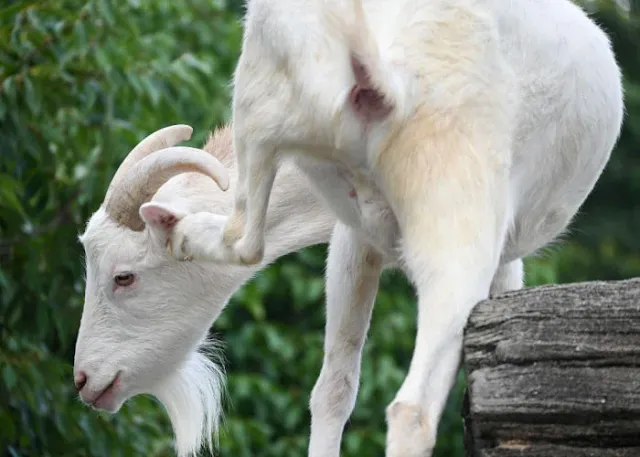How To Treat Zinc Deficiency In Goats
Caring for Your Goats: Tackling Zinc Deficiency
Introduction
Zinc deficiency in goats is a common issue that can lead to a myriad of health problems. As responsible goat owners, it's our duty to ensure the well-being of these curious and charming creatures. In this article, we'll explore how to treat and prevent zinc deficiency in goats with a relaxed and unique perspective.
The Importance of Zinc
Zinc is a vital mineral for goats and plays a crucial role in their overall health. It's necessary for the proper functioning of their immune system, growth, and reproduction. When your goats lack sufficient zinc in their diet, it can lead to various issues, such as poor growth, skin problems, and a weakened immune system. To ensure your goats lead happy and healthy lives, it's essential to address zinc deficiency promptly.
Signs of Zinc Deficiency
To tackle zinc deficiency effectively, you need to recognize its signs. Some common symptoms of zinc deficiency in goats include:
1. Dull and rough hair coats.
2. Slow growth or poor weight gain.
3. Reduced milk production in lactating does.
4. Hoof problems, including hoof rot.
5. Swollen joints and lameness.
6. Increased susceptibility to diseases.
7. Fertility issues in breeding goats.
Treating Zinc Deficiency
Now that you've identified the symptoms, it's time to address the issue and treat zinc deficiency in your goats.
1. Balanced Diet: Ensuring your goats have a well-balanced diet is the first step in combating zinc deficiency. A diet rich in high-quality forage and a formulated goat feed is essential. Consult with a veterinarian or nutritionist to make sure your goats are getting the right amount of zinc in their diet.
2. Zinc Supplements: If your goats are still showing signs of deficiency after adjusting their diet, consider adding zinc supplements. There are various forms of zinc supplements available, such as zinc sulfate or zinc oxide. Ensure you follow the recommended dosage for your goat's size and age.
3. Regular Hoof Care: Hoof issues are often a sign of zinc deficiency. Regular hoof trimming and maintenance can help prevent and alleviate hoof problems. Consult with a farrier if you're unsure how to properly care for your goat's hooves.
4. Adequate Hydration: Ensure your goats have access to clean and fresh water at all times. Proper hydration is essential for overall health and can aid in the absorption of nutrients, including zinc.
5. Monitor Health: Keep a close eye on your goats' health and watch for any signs of improvement or worsening of symptoms. Regular health checks and consultations with a veterinarian are essential.
Preventing Zinc Deficiency
Prevention is always better than a cure. To prevent zinc deficiency in your goats:
1. Balanced Diet: Maintain a consistent and balanced diet for your goats. Ensure their food contains all the essential nutrients, including zinc.
2. Pasture Rotation: Rotate pastures regularly to provide fresh forage and minimize the risk of zinc depletion in the soil.
3. Mineral Supplements: Offer a mineral supplement that is specifically formulated for goats. These supplements usually contain zinc and other essential minerals.
Conclusion
Zinc deficiency in goats can be a concerning issue, but with proper care and attention, it can be effectively treated and prevented. By providing a well-balanced diet, regular health checks, and swift action when symptoms arise, you can keep your goats happy, healthy, and zinc deficiency-free. Always consult with a veterinarian or experienced goat farmer for the best guidance on managing your goat's nutritional needs. Your goats will thank you with their vibrant health and playful antics in return.


Post a Comment for "How To Treat Zinc Deficiency In Goats"